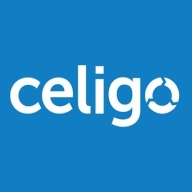

Jitterbit Harmony and Celigo Integration Platform both serve as robust tools for business integration in the connectivity and automation category. Celigo Integration Platform is generally considered superior due to its advanced features, which justify its higher cost.
Features: Jitterbit Harmony provides strong data transformation capabilities, focusing on real-time integrations that enhance business processes. It is tailored towards businesses seeking efficient and effective integration solutions. Celigo Integration Platform offers a wide range of pre-built connectors and templates, making it more flexible for complex integrations. It emphasizes customizable workflows appealing to businesses with diverse integration needs and provides advanced feature sets that align well with strategic goals for enterprises.
Ease of Deployment and Customer Service: Jitterbit Harmony has an intuitive deployment model and reliable support channels, facilitating a straightforward initial setup. Celigo Integration Platform, offering more complex deployment, ensures transparent processes through detailed documentation and comprehensive support. Celigo provides extensive resources for tackling complex integration scenarios, which could enhance customization options despite potentially longer deployment times.
Pricing and ROI: Jitterbit Harmony is known for its affordable setup costs, delivering substantial ROI through efficient deployment and low maintenance requirements. Celigo Integration Platform, with its higher initial investment, offers significant long-term value reflecting its advanced capabilities. Enterprises seeking tailored solutions that align with strategic goals often prefer Celigo despite its premium pricing, as the expansive feature set provides a compelling proposition.

Celigo stands as a leading Integration Platform as a Service (iPaaS) solution, empowering businesses to seamlessly connect and automate their enterprise applications. With a unified platform supporting over 2,000 connectors and data sources, Celigo enables the integration, orchestration, and automation of business processes across cloud and on-premises systems. Key features include AI-powered automation, real-time data exchange, low-code development tools, and enterprise-grade security. Businesses of all sizes leverage Celigo to automate tasks in sales and marketing, customer service, order management, financial and accounting processes, as well as HR operations. The platform not only offers efficiency and agility but also brings about benefits such as reduced IT costs, improved productivity, increased efficiency, and enhanced adaptability to changing business needs.
Jitterbit Harmony is a comprehensive platform for data integration and API management, enabling seamless synchronization and automation across cloud-based and on-premises applications.
Users leverage Jitterbit Harmony to integrate systems like ERP and CRM applications, simplifying complex data workflows and enhancing automation. It supports efficient data migration and ensures smooth connectivity, handling diverse integration needs and helping streamline business processes. Users emphasize its drag-and-drop functionality and extensive templates, which contribute to its robust performance. However, improvements are needed in data mapping, error message clarity, and documentation, especially when dealing with large data volumes.
What are the key features of Jitterbit Harmony?Companies across retail, manufacturing, healthcare, and finance sectors use Jitterbit Harmony to integrate critical applications and automate workflows. In retail, it connects inventory systems with sales platforms, reducing manual effort. Manufacturers sync their ERP systems with supply chain software, optimizing operations. Healthcare organizations integrate patient management systems with insurance databases, streamlining patient care. Financial institutions use it to connect accounting software with banking systems, ensuring real-time financial data exchange.
We monitor all Integration Platform as a Service (iPaaS) reviews to prevent fraudulent reviews and keep review quality high. We do not post reviews by company employees or direct competitors. We validate each review for authenticity via cross-reference with LinkedIn, and personal follow-up with the reviewer when necessary.